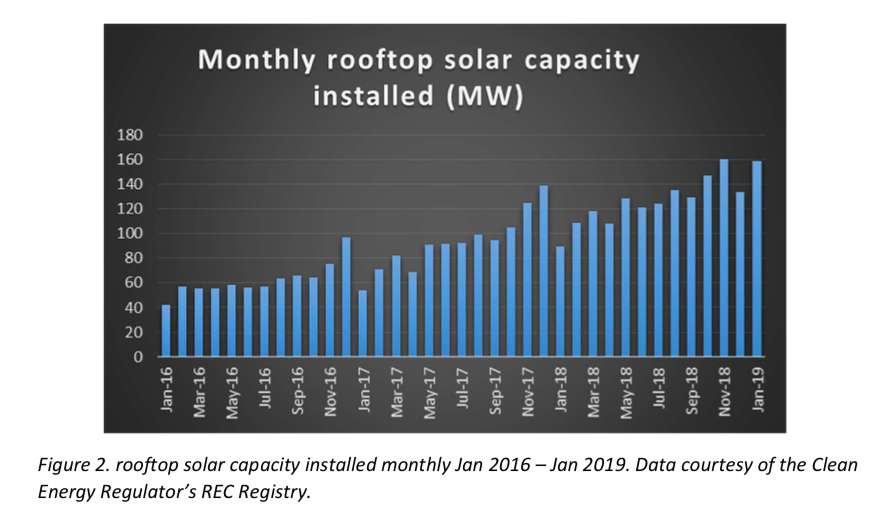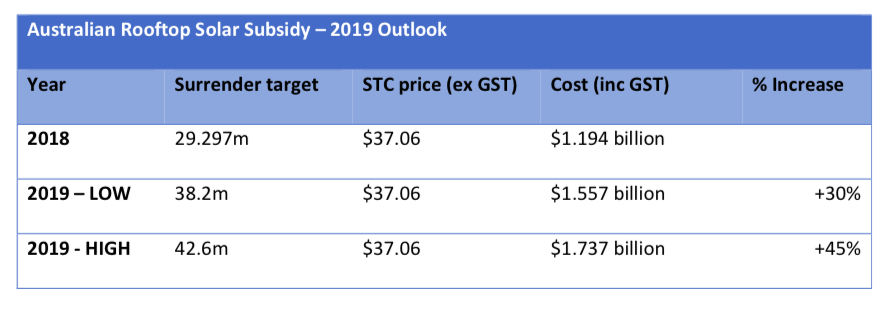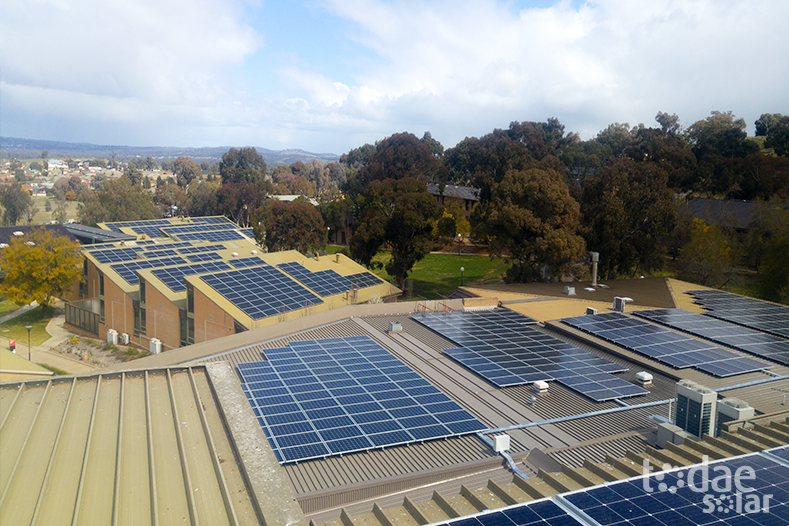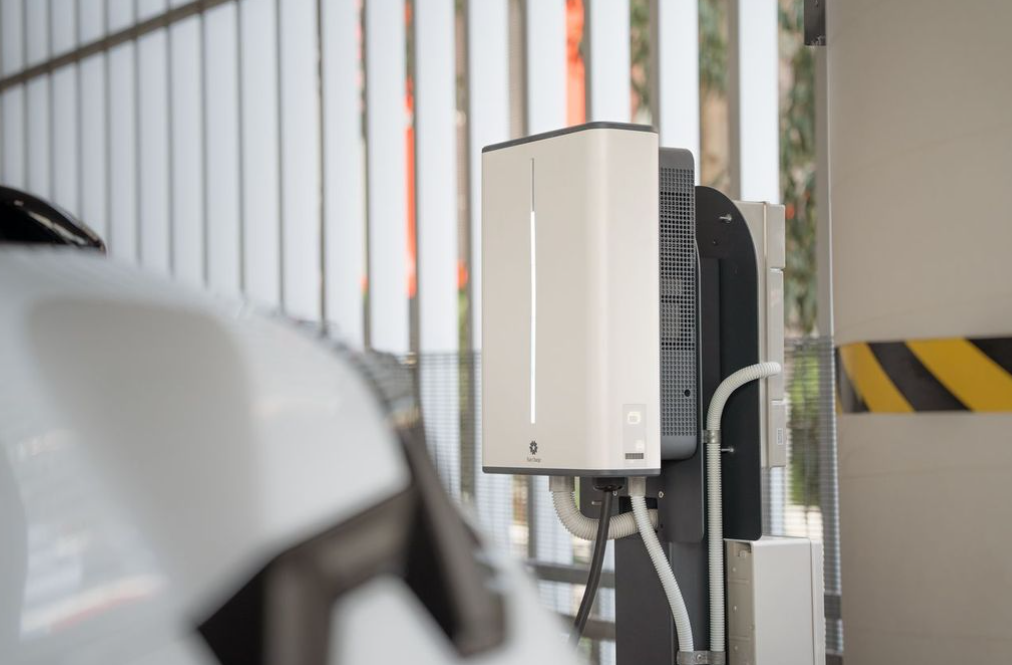In figures that have been seized on by solar critics, Demand Response has tipped the costs of the SRES to increase by 30% in 2019. The increase would see SRES economy-wide costs to $1.56 billion, adding $360 million to energy bills
“Considering the ever-accelerating uptake of solar power in Australia, Demand Manager believes changes to the SRES could be imminent and solar power retailers should look at hedging mechanisms to protect revenue streams,” the report’s authors write.
Demand Manager reports that the rooftop solar boom that took place in 2018 shows few signs of abating. January surpassed October 2018, according to REC Registry figures compiled by Demand Manager, with 159.4 MW installed on Australian rooftops.

Victoria overtook New South Wales in January, with 7,000 households adding solar PV – on the back of state government grants worth $2,250 per household – at a cost of $15.5 million.
“The rapid boom in Victoria looks set to be replicated in NSW as both major parties have promised voters additional subsidies for rooftop solar installations,” the report tips.
The report from Demand Manager goes on to advocate for measures to be taken to avoid costs of the SRES from blowing out. It points to “previous solar booms” in which overly generous subsidies encouraged “unscrupulous operators” to energy the market, installing poor quality and unsafe systems.
The report also warms that the costs of the SRES will become prohibitively high.
“Far from subsidies for renewable energy decreasing and [federal Energy Minister] Mr Taylor being the “Minister for getting electricity prices down”, it would appear the solar subsidy cost item on electricity bills will be increasing markedly in 2019.”
In July 2018, the Australian Competition and Consumer Commission advised that the SRES be wound up by 2021 – ahead of schedule. The recommendation has not yet been taken up by the Federal Government, as the scheme remains popular with voters.

This content is protected by copyright and may not be reused. If you want to cooperate with us and would like to reuse some of our content, please contact: editors@pv-magazine.com.









1 comment
By submitting this form you agree to pv magazine using your data for the purposes of publishing your comment.
Your personal data will only be disclosed or otherwise transmitted to third parties for the purposes of spam filtering or if this is necessary for technical maintenance of the website. Any other transfer to third parties will not take place unless this is justified on the basis of applicable data protection regulations or if pv magazine is legally obliged to do so.
You may revoke this consent at any time with effect for the future, in which case your personal data will be deleted immediately. Otherwise, your data will be deleted if pv magazine has processed your request or the purpose of data storage is fulfilled.
Further information on data privacy can be found in our Data Protection Policy.